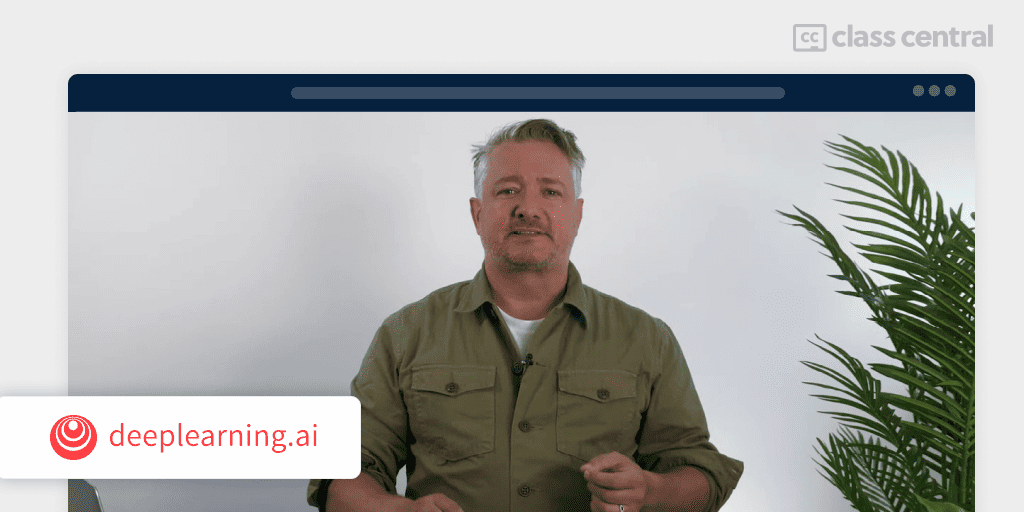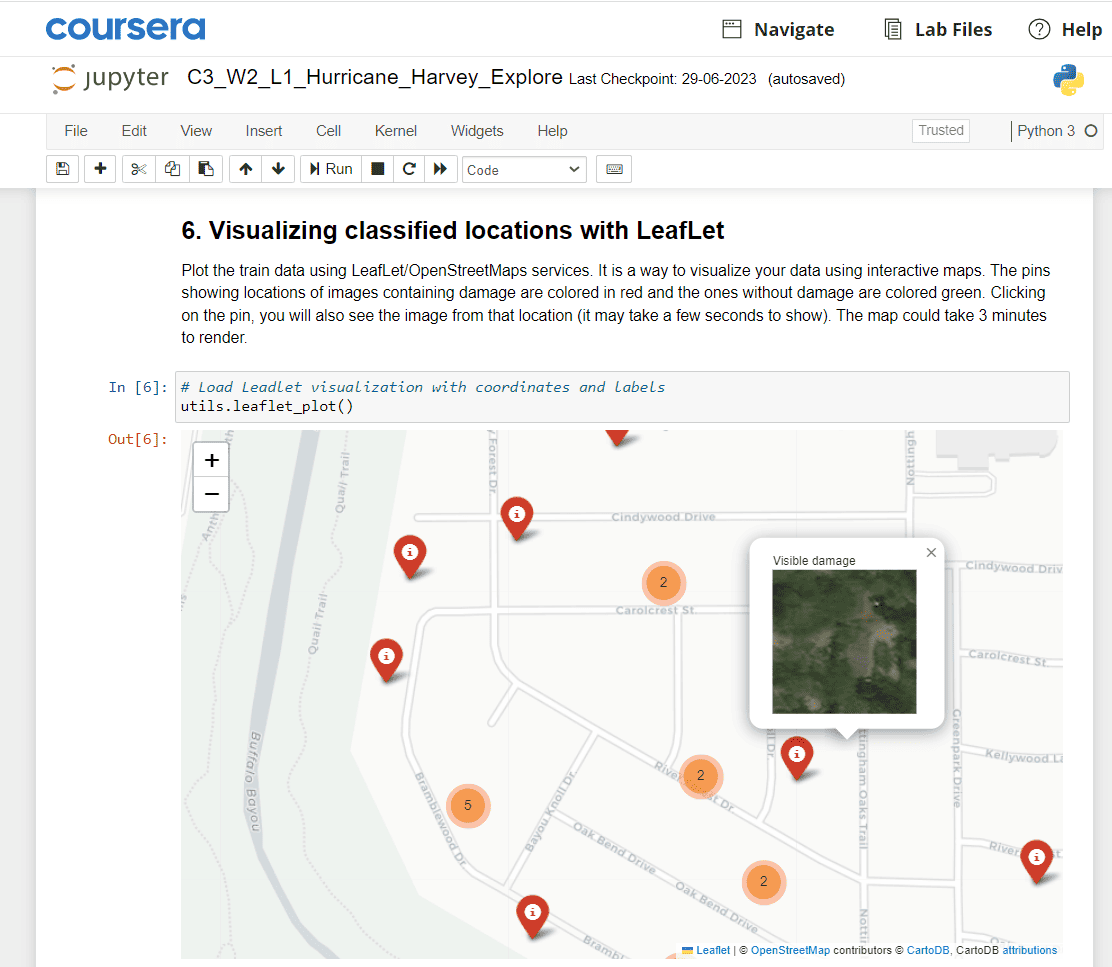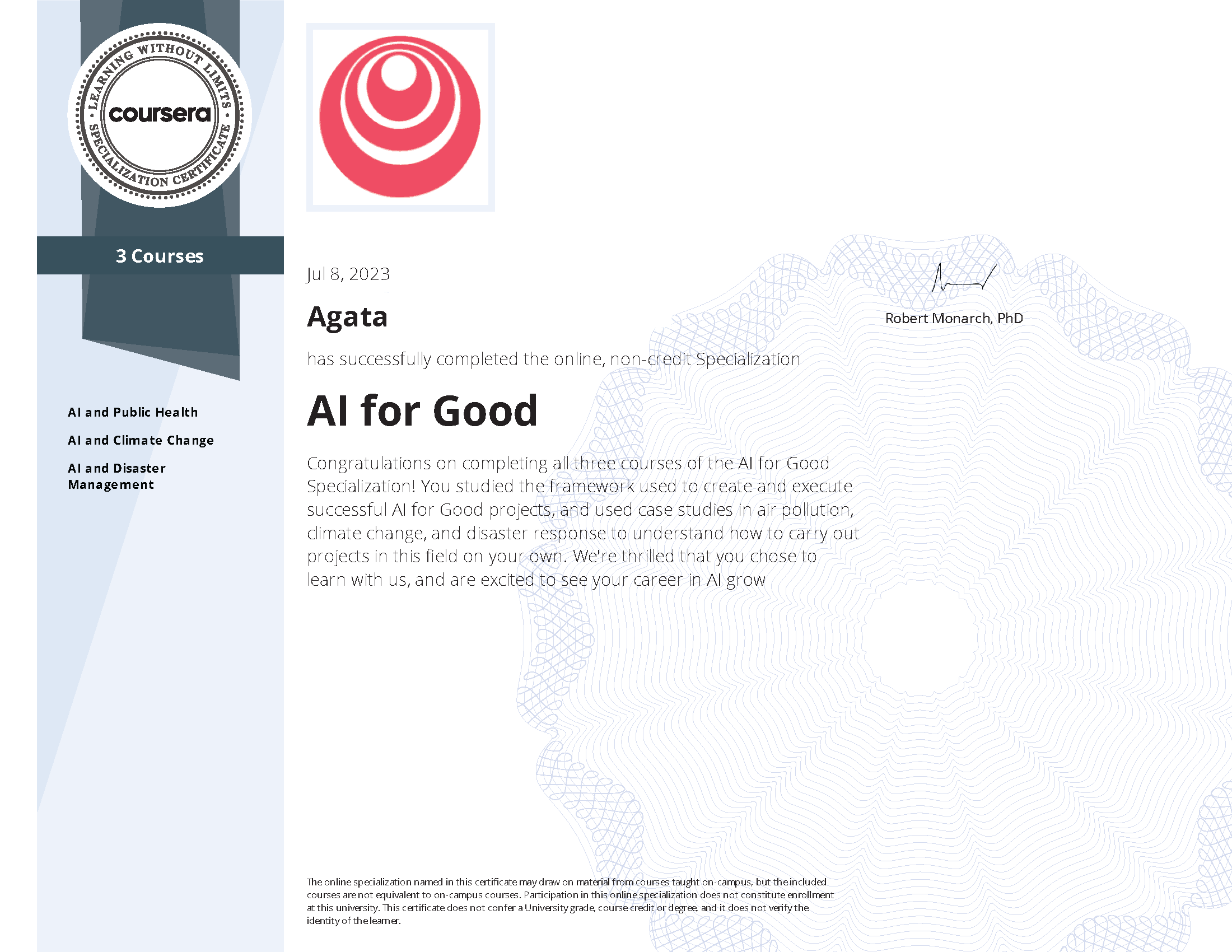AI for Good: A DeepLearning.AI Course Review
Harnessing data science for positive environmental impact – exploring the intersection of machine learning, climate change, and disaster management.

I recently completed the AI for Good specialization on Coursera, and I must say, I wish this program had existed five years ago when I first embarked on my journey into the world of data. This specialization provides a multitude of practical applications of data science, which is particularly valuable for newcomers to the field.
The AI for Good specialization consists of three courses:
The courses blend machine learning and environmental science, equipping students with the ability to tackle real-world challenges and make a positive impact.
Why did I take this specialization?
I’m a data analyst and as someone who is already working professionally with data, I couldn’t pass up the opportunity to explore how I could apply my current skillset in the context of climate change and other environmental issues. Additionally, I was eager to discover any new techniques that could benefit my current work.
Instructor
The instructor of the AI for Good specialization is Robert Monarch, an experienced professional with over two decades of expertise in utilizing data to address environmental challenges. Throughout the course, Robert guides us through the projects, shedding light on the complexities in their real-life implementation. One aspect of the course that I particularly appreciated was the inclusion of guest speakers who shared their knowledge and experiences. Their contributions provided invaluable insights into ongoing projects and the obstacles they encountered. This diverse range of voices provided me with a more comprehensive understanding of the current problems being addressed in the courses.
Recommended Skills
This course is suitable for everyone, including those without any prior knowledge in data science or environmental sciences. However, having a basic understanding of machine learning would be beneficial for better comprehension and engagement with the material. Personally, having completed several data science courses beforehand, I was already familiar with the main concepts covered in this specialization, which allowed me to complete the course more quickly. Nevertheless, I believe that for those who have not explored similar subjects, this course can serve as a valuable starting point, offering a higher-level overview of the possibilities of AI.
Certificate and Grading
Yes, a certificate is available for completing this specialization. Additionally, each of the three courses within the specialization offers a separate certificate upon successful completion.
The grading and passing criteria for this specialization are based on quizzes. Although there are labs included in the courses, they are not graded, and the students aren’t expected to write any code themselves.
The Course
AI for Good offers a powerful combination of data science, environmental sciences, and project management. The first course introduces an effective approach to structuring projects into Exploration, Design, Implementation, and Evaluation phases. This framework is repeatedly applied in each case study throughout the specialization.

The specialization covers a wide range of topics. Non-data topics include explanations of climate change, the impacts of global warming, wind power forecasting, biodiversity monitoring, disaster management, maternal and infant health, and air quality. On the data side, we learn about concepts like supervised and unsupervised learning, neural networks, and the basics of natural language processing. As you can imagine, it is not possible to cover everything in depth within these relatively short courses. However, there are links to additional resources where students can read in-depth about topics that particularly capture their interest.
The courses contain labs in Jupyter Notebooks. There is no need to install any software or write any code. The necessary Python code is readily available, enabling us to run it in the provided cells. By doing so, we can generate interactive visuals, enabling us to explore different perspectives by simply clicking and selecting options in slicers or on the map. Personally, I was particularly intrigued by these interactive visuals, and I am now eager to learn how to create similar ones, as I have limited experience in this area.

Conclusion
Overall, the AI for Good specialization on Coursera is a perfect combination of data science and environmental sciences. The labs and case studies provided me with insights into the application of AI for positive impact, and the interactive nature of the course made it easy for me to actively engage with the material.







